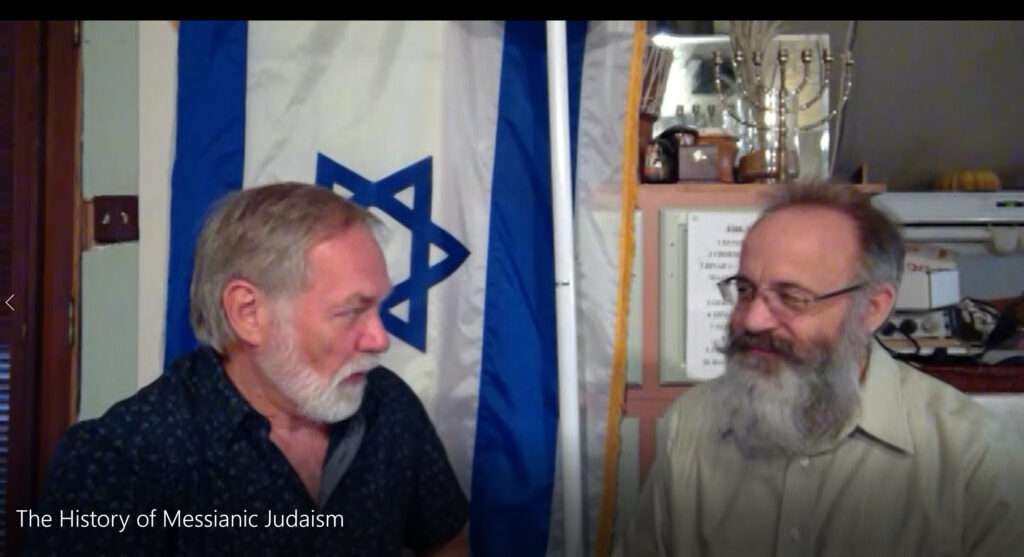
“Behold, I will send you Elijah the prophet before the coming of the great and awesome Day of the LORD. And he will turn the hearts of the fathers to their children, and the hearts of the children to their fathers. Otherwise, I will come and strike the land with a curse.“
– Malachi 4:5-6.
“He will raise a banner for the nations and gather the exiles of Israel; He will collect the scattered of Judah from the four corners of the earth. Then the jealousy of Ephraim will depart, and the adversaries of Judah will be cut off. Ephraim will no longer envy Judah, nor will Judah harass Ephraim.“
– Isaiah 11:12-13.
The most important forgotten truth of the Bible is the history and prophecy of the two houses of the Abramic covenant. Simply, the package of unbreakable promises made by God to Abraham were inherited by (and affirmed by God to) Isaac and Jacob. But when Jacob married two wives – Leah and Rachel – the law of inheritance mandated a split of the promises between the two houses.
Leah’s house, named the House of Judah after her son Judah, inherited the right of royalty (the Scepter Promise) and all the kings of the Jews forever after, including Jesus, were a fulfillment of that promise (Genesis 49:10).
Rachel’s house was named the House of Israel because her son Joseph held special legal rights as the firstborn son of Jacob/Israel. Technically, he was the 11th of Jacob/Israel’s 12 children, but he was the firstborn son of Rachel, and Leah’s firstborn son Reuben had been disqualified from his birthright because of sin (1 Chronicles 5:1), so the firstborn birthright inheritance fell to Joseph.
Joseph’s “Birthright Promise” included the blessing of vast numbers of descendants, and a double portion of everything, including especially the land. So, instead of a single Tribe of Joseph, his sons Manasseh and Ephraim became equal in status to their uncles as patriarchs over the Tribe of Manasseh and Tribe of Ephraim, respectively. In this way, Joseph received a double portion of the land and of influence among the 12.
Jacob famously passed the firstborn birthright to Joseph’s younger son Ephraim instead of Manasseh (Genesis 48:1-22), which was a choice God Himself confirmed in Jeremiah 31:9, saying, “For I am Israel’s Father, and Ephraim is My firstborn.”
Importantly, that verse is the centerpiece of a passage prophesying the promise of a New Covenant upon Christ’s first advent, and a reconciliation and return of the two houses to the Holy Land upon His second coming (Jeremiah 31:1-40). This same prophecy in different terminology is given in Ezekiel 37:1-28.
Evidence of power sharing and trading by the two houses is found throughout the Old Testament. Joshua the Ephraimite and Caleb the Judean were the only two spies to vote for honoring God’s command to conquer the Holy Land from the south soon after their deliverance from Egypt (Numbers 13-14). After the 40 year wilderness punishment of the people for defying God, Joshua became the first “president of the Israelite Republic” (if you will) when the people finally were allowed to cross the Jordan into the Holy Land and enjoy the freedom of relative self-determination under the rule of (Mosaic) law.
God’s tabernacle and the Ark of the Covenant were housed in Shiloh in the territory of Ephraim for the first approximately 400 years, under the authority of the House of Israel.
After the House of Israel failed greatly by allowing Canaanite idolatry to rise among the people, God destroyed Shiloh and gave the House of Judah political authority over the nation. “[The House of Israel] enraged Him with their high places and provoked His jealousy with their idols. On hearing it, God was furious and rejected Israel completely. He abandoned the tabernacle of Shiloh, the tent He had pitched among men. … He rejected the tent of Joseph and refused the tribe of Ephraim. But He chose the tribe of Judah, Mount Zion, which He loved. … He chose David His servant.” (Psalm 78:58-70)
Importantly, the House of Israel was never again restored to power over the 12, and when the House of Judah also failed God through idolatry (under Solomon) the two houses were permanently divided into two kingdoms led, one each, by the House of Judah and the House of Israel. Ephraim of the House and Kingdom of Israel again led the way but into deeper sin, not righteousness, until God literally “divorced” the 10 tribes of Israel and sent them away into the wilderness where they lost their identity and were scattered among the Gentiles.
The high drama of this story, and God’s plan to eventually restore the House of Israel to Himself, is told in exhaustive detail in allegory form in the book of Hosea. Hosea adds essential details and context to the prophecies of Jeremiah 31 and Exekiel 37, characterizing Judah and Israel as God’s “wives,” of whom He only divorced Israel, not Judah.
Long story short, the death of Jesus Christ on the cross released Israel to remarry, and thus ALL who believe in Him (from every tongue, tribe and nation – Genesis 22:18) become part of the Bride of Christ (the renewed House of Israel), awaiting remarriage to God at the Wedding Feast of the Lamb. To learn more about this, read my free book “The Prodigal Son Prophecy.”
The main point here, however, is that the truth of the two house covenant solves several key problems that keep Jews and Christians in conflict. It corrects the major flaw of “replacement theology” (supersessionism) by showing that only the House of Israel was “replaced,” not the House of Judah. It acknowledges that the House of Judah (Torah-believing Jews) still has a separate, strained but unbroken relationship with God on His terms that are explained to Christians in Romans 11. It explains the severe enmity that has existed between Christians and Jews for nearly two millennia. And it serves as context for recognizing the season of transition at the end of the Age of the Gentiles and the beginning of the Millennial Kingdom.
In the millennial prophecy of Ezekiel 37: 15-28, “the Lord GOD says: ‘I will take the stick of Joseph, which is in the hand of Ephraim, and the tribes of Israel associated with him, and I will put them together with the stick of Judah. I will make them into a single stick, and they will become one in My hand.'” That is the very picture of Christ-embracing Messianic Judaism – AND the separate but parallel track of Hebraic-oriented evangelical Christianity such as is practiced by my First Century Bible Church. Both are evidence that the Lord’s return is very near.



